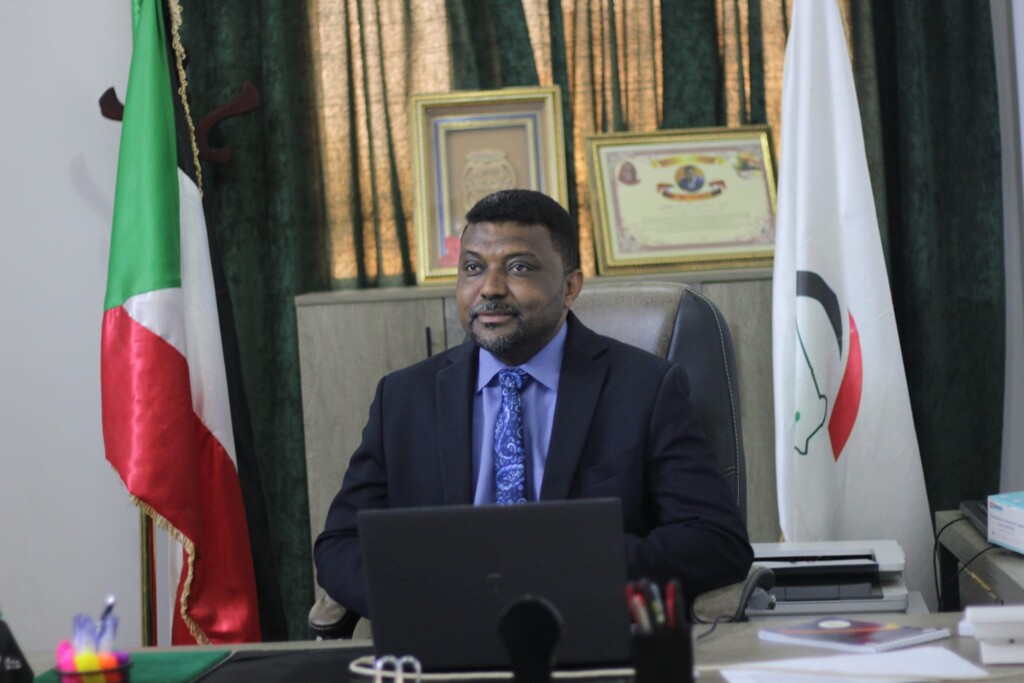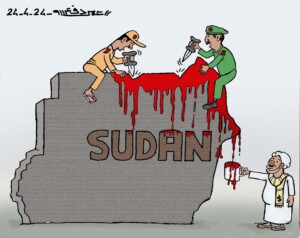Poverty in Sudan risen to 65%

Ezeldin El Safi, Director of the Sudan’s Commission for Social Security, Solidarity, and Poverty Reduction (Photo: Supplied)
KHARTOUM –
The Director of Sudan’s Commission for Social Security, Solidarity, and Poverty Reduction, Ezeldin El Safi, met with delegates from the United Nations in Khartoum on Thursday, to discuss how best to support the commission in reducing poverty amidst Sudan’s woeful current economy.
In their meeting, El Safi highlighted the alarming growth of poverty in Sudan which has now reached 65 per cent. As well as the UN delegates, he also met with the Ministry of Finance, Jibril Ibrahim, and the Director of the Central Bureau of Statistics, following the revelatory multidimensional poverty cluster survey the commission recently conducted. The survey’s findings will be published next week, according to El Safi.
According to the commission, the UN delegation will “provide technical and institutional support” in integrating a program to eliminate poverty reduction in the long term.
‘Unprecedented stagnation’
Market vendors in El Gedaref in eastern Sudan and El Nehoud in West Kordofan, reported a stagnation in sales due to the weak purchasing power of people in Sudan.
Vendors complained of the decline in the purchase rates of everyday commodities in all commercial sectors and indicated that this “recession is unprecedented in recent decades”. The market owners stated that “goods and products are available, but the purchasing power is very weak”.
They added that, in addition to the fact that the conditions of traders are in constant crisis, “the market movement has reflected Sudan’s poor security situation”.
Radio Dabanga previously reported the growing frustrations in regard to the ‘dismal economic performance’ Sudan experienced as a result of the putschists. In an interview with economist Abdelrahman Eisa, he stated that Sudan’s chairman of the Transitional Sovereignty Council and Commander of the Sudan Armed Forces (SAF), Lt Gen Abdelfattah El Burhan, “brought parasitic capitalism back to the scene and returned all the stolen money recovered [by the Empowerment Removal Committee set up by the government of Abdallah Hamdok] for the benefit of the people to the thieves”.
A report published in the first half of the 2022 financial year by the transparency monitor, Sudan Transparency and Policy Tracker (STPT), also predicted a tough last quarter of 2022, and expects a tougher 2023 if military rule was to persist.
The Sudanese Central Bureau of Statistics reported that annual inflation fell from 107 percent in September to 102.6 per cent in October last year. However, whilst inflation did in fact decrease, it has “nothing to do with improved livelihoods, and is rather a state of stagnation which is the result of weak purchasing power,” the economist explained. Eisa also pointed out that more than 60 per cent of Sudan’s commodities are being traded on the parallel market.











 and then
and then